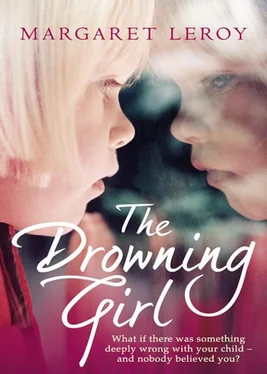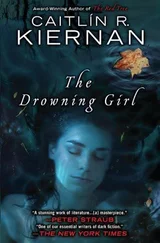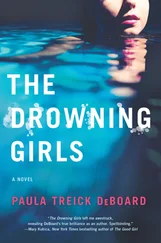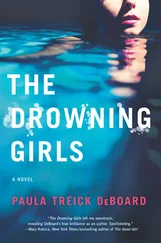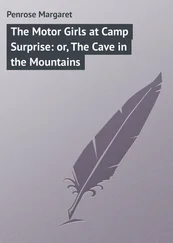In the living room, Sylvie is on the floor again, busy with her Noah’s Ark, humming softly to herself, as though none of this had happened.
‘I’ll make you some toast,’ I tell her.
She doesn’t look up.
‘With Marmite?’ she says.
‘Of course. If that’s what you’d like.’
I make her the toast, put milk in her cup. I eat a few mouthfuls of crumble, though my appetite has gone. I clear the table.
‘Shall we watch television?’
She nods. We sit together on the sofa, and she curls in close to me, taking neat bites of her toast. If she drops a crumb she licks her finger and dabs at the crumb and sucks it from her fingertip. It’s a wildlife programme, about otters in a stream in the Scottish Highlands. She loves the otters, laughs at their quick, lithe bodies, the way they slide across the rocks as sleek and easy as water. As we sit there close together, it feels happy again between us, the bad scene just a memory, faint as the slight bitter taste in my mouth.
‘Sweetheart, I’m sorry I shouted at you,’ I tell her. ‘I don’t feel well. My tooth hurts.’
She’s nestled in the crook of my arm. She looks up at me.
‘Which one, Grace?’ she says.
‘It’s here.’ I point to the sore place. ‘I’ll have to go to the dentist—he’ll probably take it out.’
She reaches across and rests her hand against the side of my face.
‘There,’ she says.
The tenderness in the gesture melts me. I hug her to me, bury my face in her hair, in her smell of lemons and warm wool. She lets herself be held.
CHAPTER 9
The receptionist greets me: she’s married to one of the dentists who work here. She has a faded prettiness and bleached, dishevelled hair.
‘Toothache?’ she says.
‘I’m afraid so.’
‘Oh, dear.’ She shakes her head, a little disapproving. ‘You shouldn’t have left it so long.’
The waiting room has a fish tank and comfortable chairs. I sit and watch the fish. They have a transparent, unnatural look, like embryos, and their slow, threaded dance is hypnotic. There’s the faintest antiseptic smell, like that green astringent liquid the dentist gives you to rinse with. It’s very warm, and quiet with double glazing at the windows, so all you hear is the softest hum of traffic from the street. It’s pleasant sitting doing nothing, the warmth easing into my limbs.
There are papers and magazines on the table beside me. I look casually through the magazines, hoping for something glamorous, for opulent taffeta frocks and fetishy shoes; but they’re all just property journals.
A woman comes in and speaks to the receptionist. She’s dressed discreetly, in business black with sensible court shoes, but I can’t help staring at her: her face is a mess, the skin around one eye all bruised and broken. Someone must have attacked her; perhaps she lives with a violent man. She sits beside the fish tank, very straight and still, as though moving too much could hurt her.
The dentist’s wife puts down her pen.
‘So how’s your little one doing, Ms Reynolds?’
She knows Sylvie well: I may put off my own visits, but I never miss Sylvie’s check-ups.
‘Sylvie’s fine,’ I tell her.
‘She’s how old now?’
‘She’s three.’
‘They’re so lovely at three.’ Briefly, her face softens. She has a hazy, nostalgic look. ‘They grow up so quickly,’ she says.
‘Yes, I guess so.’
‘My two are at university now. It seems to happen so suddenly. But I’ll tell you one thing—you never ever stop worrying. Whatever you do, you always feel you might have got it wrong.’
‘Yes. I can imagine that.’
Her husband calls her in to help with the patient before me: she doubles as his dental nurse.
I glance across at the woman with the bruising. I wonder about her life, and the little steps, each seeming perhaps so innocuous, that have brought her to what looks like a very bad place. How easily this can happen—sleepwalking into trouble. Maybe she senses my gaze on her; she glances up, catches my eye. I feel myself flush and turn back to the magazines, pulling out a local paper, the Twickenham Times .
I keep my eyes down, looking at the paper, pretending to be interested. There are pictures of school prize-givings. I read my horoscope. There’s a recipe for grapefruit and poppyseed cake, which sounds delicious and which I attempt to memorise. I wonder if poppyseeds are expensive, and whether they stock them at Somerfield.
Something catches my eye then, a double-page spread in the centre of the paper. ‘The Real Ghost-Busters: Cynthia Johnson Reports.’ Intrigued, I start to read. It’s all written in that bland, gossipy style you find in small local newspapers.
Things that go bump in the night are all in a day’s work for Dr Adam Winters, of the Psychic Institute at Hampton University. Adam talked to me in the disappointingly prosaic setting of his office in the Department of Psychology. A soft-spoken man, whose gentle voice belies his evident energy and fascination with his subject, he has investigated ghosts, poltergeists and cases of telepathy. Sounds like an exciting job? ‘Mostly it’s quite routine,’ says Adam. ‘For instance, if someone claims to have telepathic powers, we might set up an experiment where they have to make predictions, and we analyse the results to see if their guesses are better than chance. Basically we’re applying scientific methods of inquiry to the things that happen to people that they can’t explain…’
There’s a photo of Adam Winters with the article. It’s a grainy photo; you can’t really see him clearly. He’s lean and dark, and his chin is shadowed with stubble, and he has a startled air, as if someone has just called his name. I contemplate the photo for a moment. I decide he’s the kind of man who’d corner you at a party and stand too close and talk at length about some obsession of his: someone who’d undoubtedly think that I was rather frivolous. Then I smile at myself, for conjuring up this entire persona for him.
I can hear the edgy, mosquito whine of a drill from one of the surgeries. I don’t want to think about it. I focus on the article, which has lots of stories of local ghosts. There’s a gallery at Hampton Court that’s haunted by the ghost of Kathryn Howard, whom Henry VIII beheaded: dogs won’t go over the threshold. Adam Winters and his colleagues visit the sites of the hauntings, and measure fluctuations in electromagnetic fields.
I ask him if he believes in ghosts, but he’s guarded and non-committal. He tells me, ‘A scientist should never say that anything is impossible…’
I look up as the woman in the black business suit is called in. I notice how stiffly she moves, her body fragile as eggshell. Then the door bangs shut behind her, and I’m alone in the room.
I turn back to the paper. I skim through the rest of the article, and am about to turn the page when the last few lines spring out at me as though they are illuminated.
But Adam doesn’t confine his researches to ghostly apparitions. One of the cases he’s currently investigating is that of four-year-old Kevin Smith (not his real name). Kevin wakes sobbing every night and says he wants to go home, and sometimes he talks about a place where he says he used to live. His mother wonders if Kevin is remembering a previous life…
The room tilts. I can feel my heart, its rapid, jittery beat.
I put it to Adam that many children live in a fantasy world. ‘Of course,’ he says. ‘And that’s why we have to look at these cases very carefully. In fact, accounts of children apparently remembering past lives are actually quite common, though most of them come from cultures which have a belief in reincarnation, like the Druse of Lebanon.’ And he tells me there are psychiatrists who claim to use past life regression to heal physical symptoms and phobias…
Читать дальше
